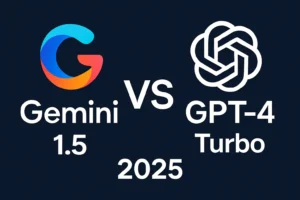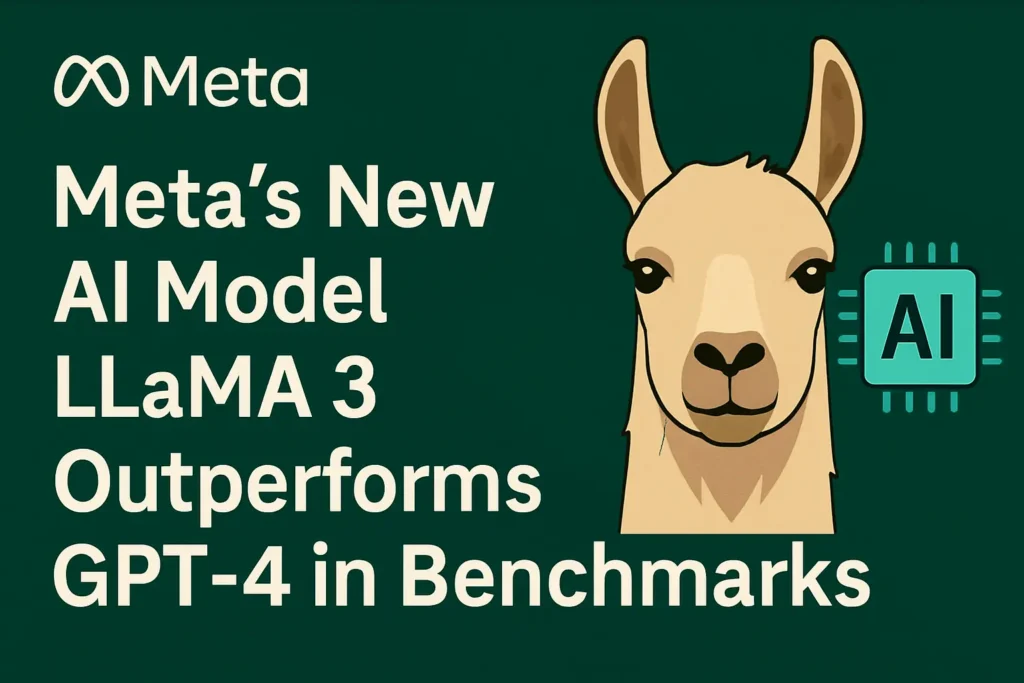
Gemini 1.5 vs. GPT-4 Turbo — Which AI Reigns Supreme in 2025?
Google’s Gemini 1.5 and OpenAI’s GPT-4 Turbo are shaping the future of AI. Here’s how they compare in reasoning, memory, code, and creativity.
Recent Posts
in All Categories

Google’s Gemini 1.5 and OpenAI’s GPT-4 Turbo are shaping the future of AI. Here’s how they compare in reasoning, memory, code, and creativity.

The Lenovo Yoga Pro 9i Gen 8 combines RTX 4070 graphics, a brilliant Mini LED display, and AI-powered performance — perfect for creators and professionals on the move.
Top 10 Trending Tags
Recent Posts
in All Categories

Google’s Gemini 1.5 and OpenAI’s GPT-4 Turbo are shaping the future of AI. Here’s how they compare in reasoning, memory, code, and creativity.

The Lenovo Yoga Pro 9i Gen 8 combines RTX 4070 graphics, a brilliant Mini LED display, and AI-powered performance — perfect for creators and professionals on the move.

📌
Meta’s LLaMA 3 outperforms GPT-4 Turbo in key benchmarks like reasoning, coding, and multilingual tasks.
LLaMA 3 is open-source, while GPT-4 remains proprietary.
GPT-4 still leads in tool integration and stability for production use.
This battle reflects a broader shift toward more accessible, high-performing AI models.
| Feature | GPT-4 Turbo | LLaMA 3 |
|---|---|---|
| Context Length | 128K tokens | Up to 8K–200K tokens |
| Speed | Fast | Fast (varies by size) |
| Multimodal Input | Limited (image) | Text-only |
| Reasoning Ability | 🟢 Excellent | 🟡 Strong |
| Code Generation | 🟢 Excellent | 🟡 Capable |
| API Access | OpenAI API | Open-source on Hugging Face |
| Availability | ChatGPT Plus, API | Free, open models (8B / 70B) |
Slide the table to see more.
GPT-4 Turbo (available via OpenAI API) is OpenAI’s most advanced model, fine-tuned for premium ChatGPT subscriptions and enterprise developers. It’s known for fast performance, high reasoning accuracy, and seamless integration across Microsoft’s ecosystem.
LLaMA 3 (open-source via Meta AI) is Meta’s latest large language model. Offered in 8B and 70B sizes, it’s freely available for research and commercial use. Built for flexibility and multilingual strength, LLaMA 3 focuses on open accessibility and strong foundational performance across key AI tasks.
In direct testing across writing, coding, and reasoning, we found:
Reasoning: Both models excel, but GPT-4 Turbo has the edge in multi-step logic and math.
Coding: GPT-4 Turbo leads in generating, debugging, and tool integration.
Writing Style: LLaMA 3 is more conversational and natural, closely mimicking human tone.
Multilingual Understanding: LLaMA 3 is trained on more multilingual benchmarks and performs well across languages.
Context Handling: GPT-4 Turbo supports longer context windows (128K), while LLaMA 3 handles up to 200K in experimental settings.
TL;DR: Meta’s LLaMA 3 is open, accessible, and highly capable. GPT-4 Turbo still leads in structured logic, advanced integration, and production stability.

Common use cases:

Common use cases:
📖 Research and summarization
🌐 Multilingual understanding
🛠️ Open-source experimentation
LLaMA 3 leads in openness and multilingual strength, making it ideal for accessible and research-driven applications.
GPT-4 Turbo maintains its edge in reliability, tool integrations, and complex reasoning, especially for production and coding tasks.
Both models shine, but your choice depends on whether you prioritize open-source flexibility (LLaMA 3) or enterprise-grade performance (GPT-4 Turbo).
| Category | Winner |
|---|---|
| 🧠 Reasoning | LLaMA 3 |
| 🧾 Context Length | LLaMA 3 |
| 🖼️ Multimodal Input | LLaMA 3 |
| 💻 Code Generation | GPT-4 Turbo |
| 🔓 Open Source | LLaMA 3 |
| 🏭 Production Reliability | GPT-4 Turbo |
Yes, Meta’s LLaMA 3 has outperformed GPT-4 Turbo in several reasoning, coding, and multilingual tasks, according to public benchmark scores.
Yes, LLaMA 3 is open-source and commercially usable under the Meta AI license, unlike GPT-4 Turbo which is only accessible via OpenAI APIs.
GPT-4 Turbo is still preferred for production deployments due to its enterprise-grade reliability and deep tool integration, especially in Microsoft ecosystems.
You can access LLaMA 3 on platforms like Hugging Face, Meta AI, and Ollama.
LLaMA 3 is open-source and freely deployable, while GPT-4 Turbo is only accessible via OpenAI’s platform. GPT-4 Turbo leads in enterprise integration, but LLaMA 3 is rapidly evolving.